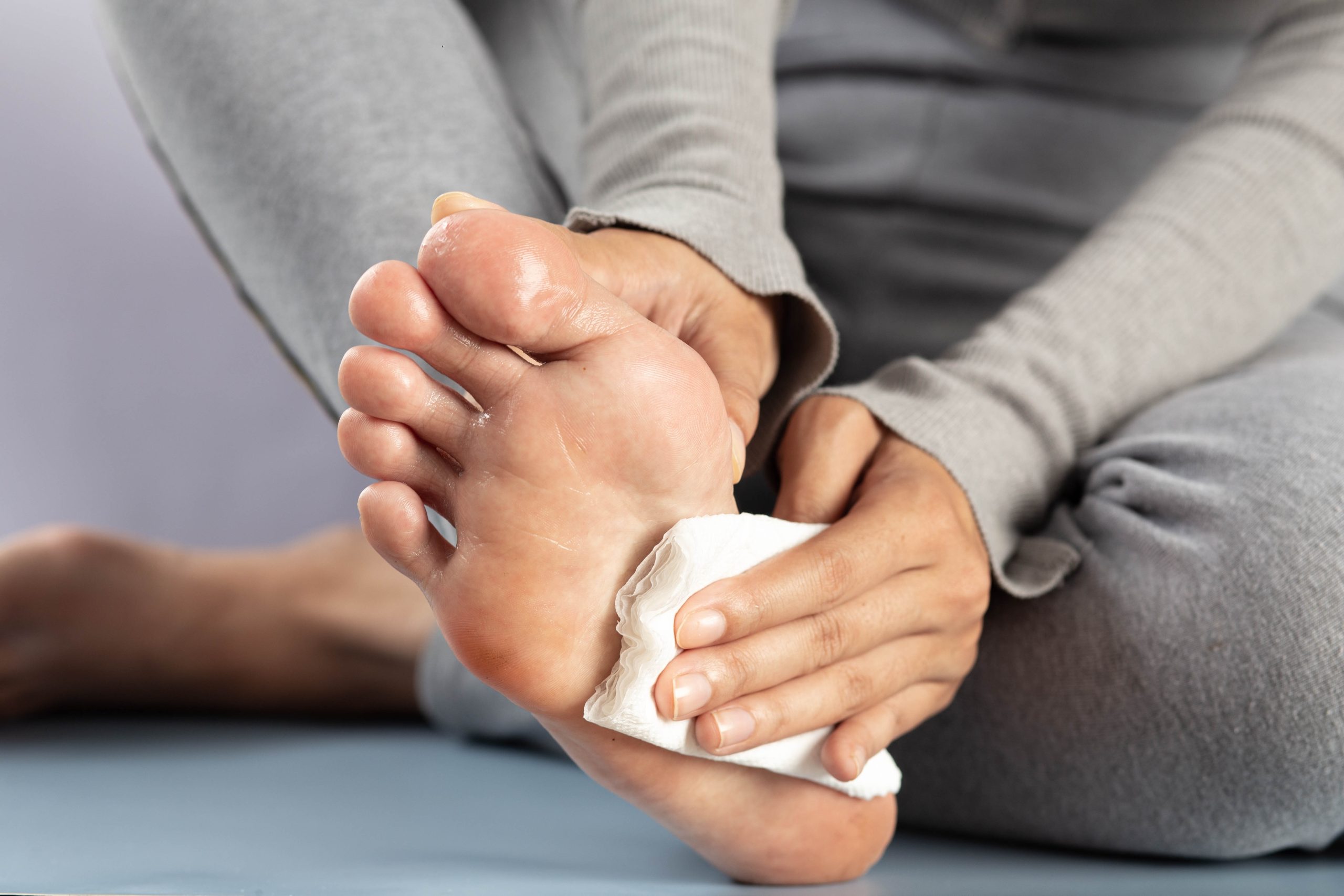Everyone has sweaty feet at some point in life, whether due to perspiration in hot weather, during physical activity, following a shower if they are not dried thoroughly, etc. The effects of wetness on this area of the body can cause some rather uncomfortable issues, although it can initially seem harmless. Below, we will go through why it is important to keep your feet dry and how to do it.
Impacts of humidity on feet: bad smells
The presence of bad odor is undoubtedly one of the first impacts of humidity on the foot. Although this is a harmless consequence, it can be very embarrassing for both the person experiencing it and those around them.
Because the feet sweat more than other parts of the body and are frequently covered by shoes, which increases the effects of heat and maceration, they start to smell bad. But it is not the perspiration itself that gives out these aromas; instead, it is the growth of bacteria and fungi, which thrive in this warm, humid environment. It is advised to practice proper foot hygiene, clean your feet thoroughly after getting out of the shower, use breathable footwear, switch up your pairs of shoes rather than wearing the same pair all the time, and choose natural fiber socks over synthetic ones if you want to avoid this problem.
Impacts of humidity on feet: a major source of ailments
Knowing that humidity tends to encourage specific ailments among its impacts on the feet is crucial. This is the case, for example, with plantar warts, a viral infection (human papillomavirus) that seems to be more frequent in people who suffer from excessive foot perspiration. These impacts of humidity also include the well-known blister, or phlyctenules, which can be brought on by excessive sweating or by wearing wet socks. In addition, excessive wetness can lead to other issues, including fungal diseases like nail fungus, skin fungus, or trench foot.
Always dry your feet thoroughly, keep them dry when wearing shoes, and choose the suitable materials for socks and shoes to prevent certain foot ailments.
Conseils pour réduire les effets désagréables de l’humidité des pieds
As mentioned above, there are several simple and accessible ways to reduce the impacts of foot moisture and its consequences, which are inconvenient, to say the least.
The first is personal hygiene, which entails regular washing with soap and thorough drying, particularly between the toes. It might be a good idea to routinely bathe your feet and use an antibacterial soap if you suffer from excessive sweating.
The second essential recommendation is to choose comfortable footwear that allows the skin to breathe. Pick materials like leather or canvas. Even better if the soles could be taken off and washed. Last but not least, go for open-toed footwear in hot weather.
Wearing socks made of cotton, bamboo, or wool is the third step to take because these materials are more breathable and better at absorbing moisture than synthetics. For nylon socks, look for models made of lycra, spandex, polyester or polypropylene.
Additionally, you should be aware that there are products available in shops that may be used to combat the effects of humidity on the foot (antiperspirants, gels, absorbent powders, etc.). For this kind of issue, several essential oils are also quite helpful. Consult your podiatrist for suggestions.
Countering the harmful impacts of foot humidity to keep your feet healthy
There is just one step from uncomfortable to painful. Although the effects of wetness on the feet are typically minor, they can nonetheless become highly unpleasant and cause genuine pain. It is not difficult to prevent this; all you need to do is adhere to basic hygiene guidelines and put on appropriate footwear and socks.
To swiftly and efficiently address your issue, make an appointment with a podiatrist at the FootNetwork clinic if you experience persistent problems brought on by humidity or excessive perspiration.

